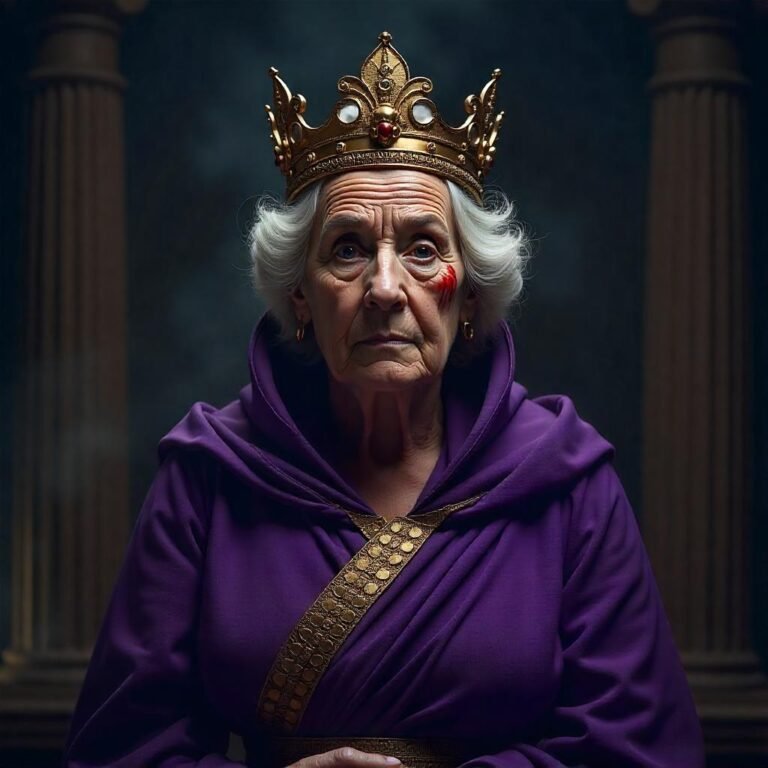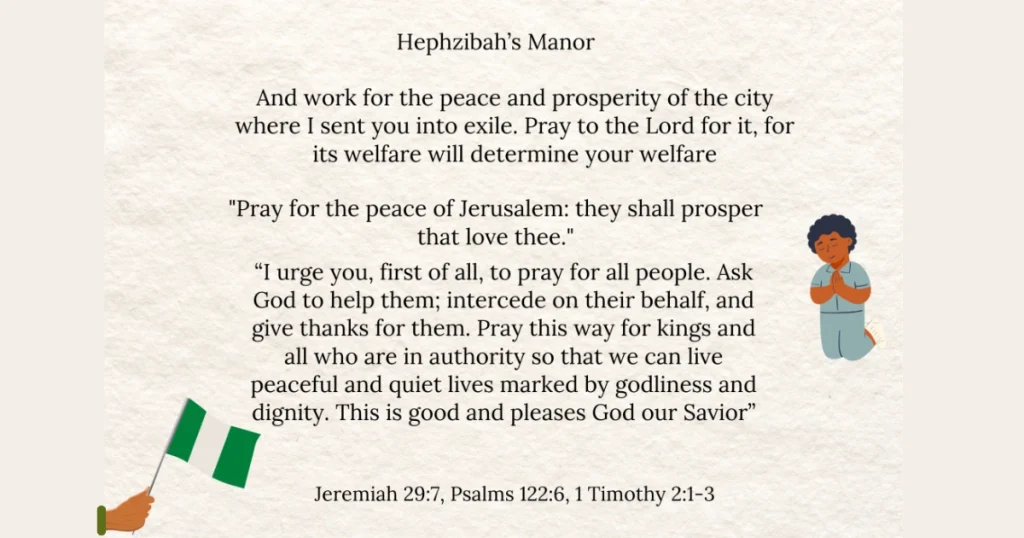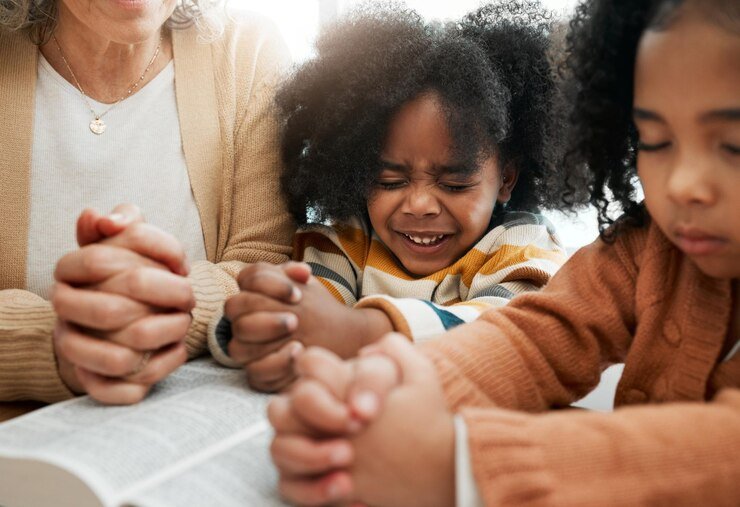Some mothers make you want to rise and clap. Some others make you rise, but to shut the window, because the chill their stories send down your spine is just too much.
Today, we meet Athaliah and Herodias.
Two women.
Two mothers.
One haunting similarity.
They both took the trust their children had in them and weaponized it. Not for protection or legacy but for destruction.
Queen Athaliah
You’ll find her story in 2 Kings 11 and 2 Chronicles 22–23. She was the daughter of Ahab and Jezebel, so no surprise there….evil did run in the family. But Athaliah wasn’t just a chip off the old block; she was a whole block on her own. Talk about taking the evil pattern of your parents to a whole other level. Jezebel would rise to clap for her!
When her son, Ahaziah, died, in her thirst for power and control, she killed ALL her grandchildren, her own descendants, just to secure the throne for herself. She wanted to completely wipe out her own bloodline. Whenever I remember her, I am left bewildered, wondering what happened to her? When did she lose the nuts of sanity and compassion?
What kind of example did she see in her mother that etched evil permanently in her veins?
What kind of mother trades motherhood for power?
Imagine a grandmother, an old woman more specifically, wiping out an entire generation for her own selfish gain. You would think that with age comes perspective. That the older people get, the more they let go of pettiness and power trips.
That they would become nurturers, cheerleaders, and safe havens for the younger ones.
You’d expect them to say, “Go farther than I ever did. Do more than I could.”
You’d hope they’d bless, not curse; build, not tear down.
But that wasn’t the case with Athaliah.
She looked at her grandchildren, not with affection, not with legacy in mind, but with elimination in her heart. She saw their existence as a threat to her position. And so she made a cold, calculated decision: “Kill them all.” Athaliah wasn’t just a bad mother. She was a terrible grandmother.
It’s hard to read. It’s harder to imagine.
Yet it reminds us that age doesn’t automatically make anyone wise or selfless. Time doesn’t sanctify us or change us, surrender to God and death to flesh does. If we don’t yield our ambitions, our insecurities, and our wounds to God, we only grow older with sharper tools and deeper pride. If we don’t let God heal and humble us, we’ll pass on poison, not blessing.
Herodias: The Mother Who Danced Her Daughter into Doom
I can’t even say if you thought Athaliah was bad, wait till you read about Herodias, because it seems they weigh similarly on the scale of evil, both cut from the same sinister fabric. You’ll find her in Mark 6:17–29.
Herodias was married to Herod’s brother, then left him for Herod himself. But that wasn’t her crime. Her real darkness showed when John the Baptist spoke against the unlawful union. Rather than listen and repent, she burned with a quiet, calculated hatred. Then came her moment.
Her daughter danced before Herod and his guests so well that the king, half-drunk with pride and pleasure, promised her anything, up to half of his kingdom. A life-changing offer you’d think. So the girl runs to her mother. “Mother, what should I ask for?”
Like she’s been waiting for that moment, Herodias says “Ask for the head of John the Baptist.”
Not wisdom. Not wealth. Not favor. But a prophet’s head.
She could have guided her daughter toward honor. Instead, she trained her into manipulation. Herodias gave her a sword instead of a future. And the young girl, trusting her mother, carried the death sentence to the king on a platter.
Athaliah And Herodias
Both women took the sacred trust of motherhood and turned it into a tool of evil. Because trust is a tool and every tool can build or destroy. No Wonder Jesus Christ who welcomed sinners and forgave the woman caught in adultery, suddenly sounded so stern when it came to children.
“If anyone causes one of these little ones, those who believe in me, to stumble, it would be better for them to have a large millstone hung around their neck and to be drowned in the depths of the sea.” (Matthew 18:6)
Jesus knew something we must never forget: Children are impressionable, and those impressions have eternal consequences.
Their hearts are soft clay. And whoever holds the clay long enough will shape it. For better or for worse. So when Jesus said it’s better to be drowned than to mislead a child, He was showing us just how sacred a child’s soul is in the eyes of God. And how heavy the judgment is when we cause harm to that soul, especially through the misuse of trust, authority, and influence.
Athaliah and Herodias weren’t passive bad mothers. They were active architects of doom, not only for themselves, but for their children and the people around them, all because they could not see beyond themselves.
The Everyday Athaliahs and Herodiases
It’s easy to distance ourselves from women like Athaliah and Herodias. We hear their stories and recoil. “God forbid! I could never do such a thing.” But what if we’ve done it… just in smaller, socially acceptable ways? What if we’re unknowingly leading our children down crooked paths, not with swords or power grabs but with whispers, bitterness, and biases?
Let me paint a picture.
There’s a mother. She calls her child from inside the house, “Come here! Don’t greet Mr. Lagbaja.” Because years ago, Mr. Lagbaja didn’t greet her properly at the last landlords association meeting.
So now, she trains her innocent child to hate someone who has done them no wrong. The child doesn’t know the full story, but trust has been weaponized.
Bias has been passed down like family inheritance.
Subtle. But deadly.
That’s how destinies are quietly derailed. That’s how a generation is trained In bitterness not love and suspicion not discernment. All wrapped in the innocent packaging of parenting.
What’s the Lesson Here?
Mothers are powerful.
We don’t always need a throne or a sword to shape destinies. Sometimes, all we need is influence. Influence is sacred. Our children trust us. They listen, even when they pretend not to. They look to us for direction, even when they seem independent.
What will they find?
Will they find a mother whose heart is set on the Lord?
Or will they find one so consumed with herself that she sacrifices everything, including them?
I read Athaliah’s story, and I shiver. I hear Herodias speak to her daughter, and I want to cover my ears. But more than that, I pray:
“Lord, may I never become the kind of woman who weaponizes influence I have over my children. May I use the trust my children have in me to lead them to You, not away from You.”
Let’s plant carefully. Let’s sow the kind of godly influence that leads them to God, not into our shadows.






